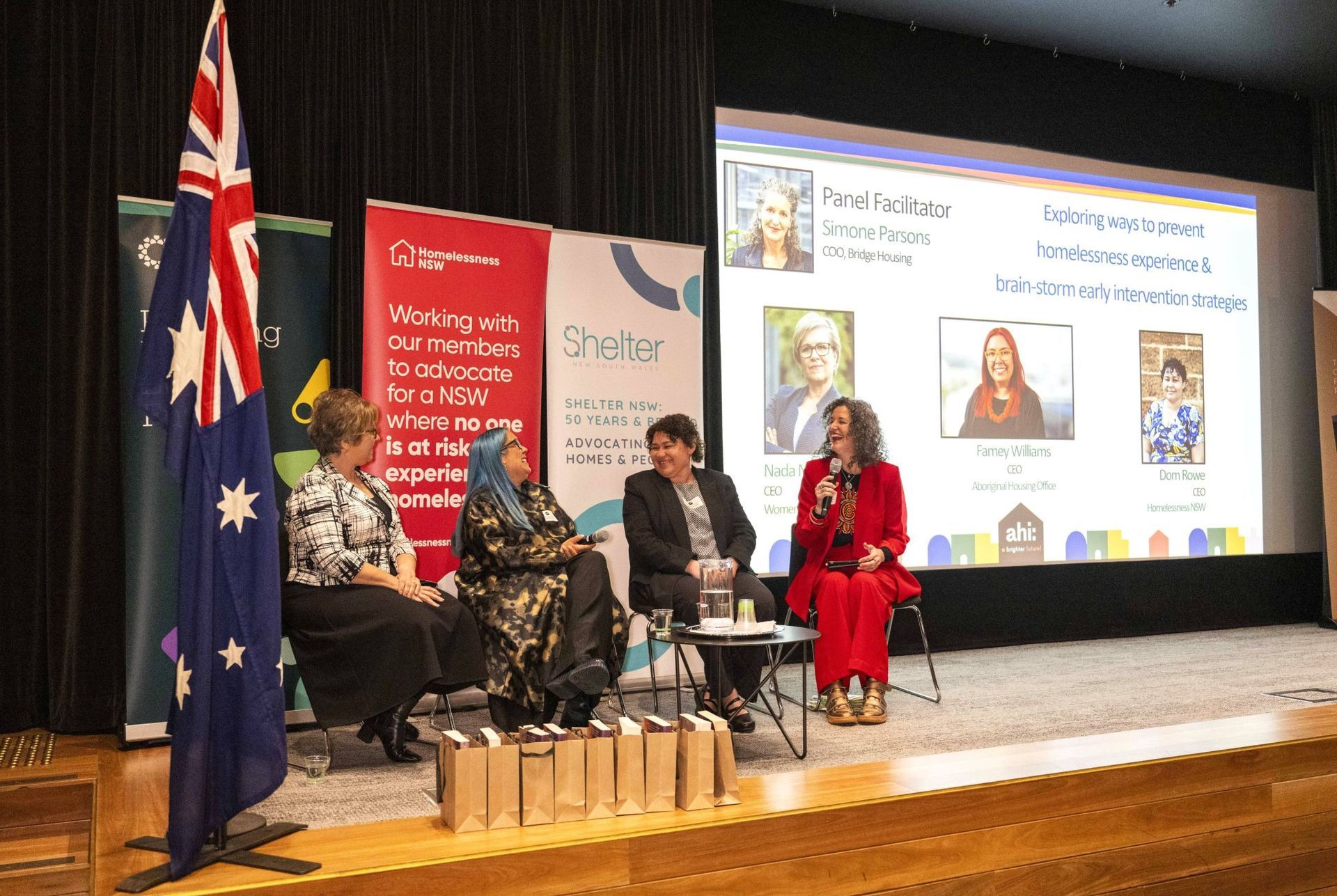ahi: President Sean Kelly selects an article from the
HousingWORKS print archive for our readers to revisit. Here, we look at Community Housing Aotearoa's 2019 Conference – The Shift – as a counterpoint to this year's event, which was held on 26th and 27th November.
THE SHIFT AOTEAROA: What does it mean?
"There is strong evidence of the connection between inadequate housing and child poverty."
While every new programme and success story should be celebrated, we must remain focussed on the need to improve the lives of our fellow citizens. There is a sense of urgency but the desire to act quickly must be balanced by the goal of achieving quality and sustainable outcomes.
There is strong evidence of the connection between inadequate housing and child poverty. Adequate housing is a one of the main
pou (supports) that enable wha-nau (extended families) and their children to flourish – along with education, health and social security. Evidence shows that access to adequate housing improves the lives of families, enabling them to realise their full potential and make a greater contribution to society.
“Lack of access to warm, safe, dry affordable housing is one of the key drivers of child poverty in New Zealand,” says Community Housing Aotearoa Chief Executive Scott Figenshow. “Our long-term goal is to ensure the housing system works for all New Zealanders, ensuring they are well-housed and contributing to a systemic and permanent reduction in child poverty.”
The housing system must ensure that those wha-nau who are currently unable to access adequate housing have viable options to meet their housing needs that support
tamariki (children) to realise their potential.”
We believe that a decent home is a basic human right and, because of this, we are working closely with the NZ Human Rights Commission and Chief Commissioner, Paul Hunt. Hunt recently spoke at The Shift Aotearoa Conference (see p.31) outlining how we must embed the right to housing into our current system and measure our progress towards achieving it.
So what needs to change?
Community Housing Aotearoa (CHA) believes that a new approach is required. This new approach needs to address the housing crisis by bringing all parts of the housing system together – building on the strengths of government,
iwi (tribes), communities and business.
New Zealand requires a fundamental change in conversation if we’re going to fix the housing crisis and its most dire manifestation – homelessness. Community Housing Aotearoa argues that we need to make a dramatic shift in our thinking, and a new approach, to build consensus and address the failures in the housing system. We are calling it The Shift Aotearoa.
"The Shift is a new way of thinking about our broken housing system"
The Shift is a new way of thinking about our broken housing system, and is particularly focussed on those who are excluded from adequate housing, especially Ma- ori and Pasifika
whānau and other low-income
whānau.
To help fix homelessness, we need to fix the whole housing system. As Scott Figenshow acknowledges, “We need a new relationship between government,
iwi, civil society and industry to tackle this problem across the whole housing system, from social housing to investment property.”
Housing is part of a complex and connected system – and the production of enough ‘decent’ homes of the right type, at the right price in the right place, is reliant on all parts of the system working together to produce the outcomes desired.
"The previous Government believed the market would fix everything. This Government believes government can fix everything."
The previous Government believed the market would fix everything. This Government believes government can fix everything. We believe that neither are true and that we need a new compact between government,
iwi, civil society and industry to collectively tackle this dire problem. In order to solve it, we need to take a more nuanced approach that works across the whole housing system.
Making these shifts requires a new way of working where government genuinely collaborates with all parts of the housing system to design policies that are acceptable and workable. It also requires far better alignment between central and local government, and will require other sectors – the community sector and the construction sector – to work more closely with government than they have in the past.
CHA is leading this work because of the organisation’s close alignment with our vision of ‘all New Zealanders well-housed’. CHA already represents a wide range of organisations, providing housing and support to many of New Zealand’s most vulnerable people. But we are also working with groups – including Māori housing ‘peak body’ Te Matapihi, the Construction Industry Council, Infrastructure New Zealand, the Property Council, and the New Zealand Green Building Council – and a number of larger local authorities.
"To be successful, we all have to agree on several things."
“We are building a consensus about how we can fix the housing system,” says Scott Figenshow.
To be successful, we all have to agree on several things. We need to agree on the urgency of fixing this problem, as well as the importance of good housing as social infrastructure – underpinning wellbeing and economic success. We need to agree that, as a society, we must make housing a human right, ensuring that decent, affordable homes are available to those who can’t access them. We also need new leadership by people from across the housing system, including those with lived experience.
The Shift Aotearoa project is built on developing strong partnerships across the system to deliver better outcomes for all New Zealanders. An example of one of these partnerships was the The Shift Aotearoa Conference (5th to 7th June in Wellington, see p.24) run by CHA in partnership with the Building Better Homes, Towns and Cities National Science Challenge.
As part of The Shift Aotearoa, we have signed a multi-year memorandum of understanding to advance ‘evidence into practice’ towards building a well-functioning housing and urban system. Our first major project together was the Conference, which included a strong emphasis on
kaupapa
Māori. By the end of day three, the Conference had revealed some of the foundational elements for a well-functioning housing system.
We hope that the evidence presented at the conference will be used by HUD, ministers and partners across the system.
CHA has been successful in attracting substantial investment in The Shift from the JR McKenzie Trust’s Peter McKenzie Project. The Peter McKenzie Project seeks a country in which all
tamariki and
whānau can flourish by supporting projects that result in a significant reduction in the number of
tamariki living in hardship and poverty
"Currently, one in every four children in Aotearoa New Zealand lives in a lowincome household."
Currently, one in every four children in Aotearoa New Zealand lives in a low-income household where their family and
whānau
struggle to provide them with the basics needed to allow them to flourish. This number has more than doubled over the past 30 years. The Peter McKenzie Project supports projects that change systems that affect the circumstances in which people live.
“This funding will ensure CHA can work with government to create a well-functioning housing system,” explains CHA Chief Executive Scott Figenshow. “Our primary focus is to build consensus around the policy settings, practices and resource flows that increase the supply of adequate housing for families living in poverty.”
“Our long-term goal is to ensure the housing system works for all New Zealanders, ensuring they are well-housed. The housing system must ensure that those wha-nau who are currently unable to access adequate housing have viable options to meet their housing needs, supporting
whānau to realise their potential.”









